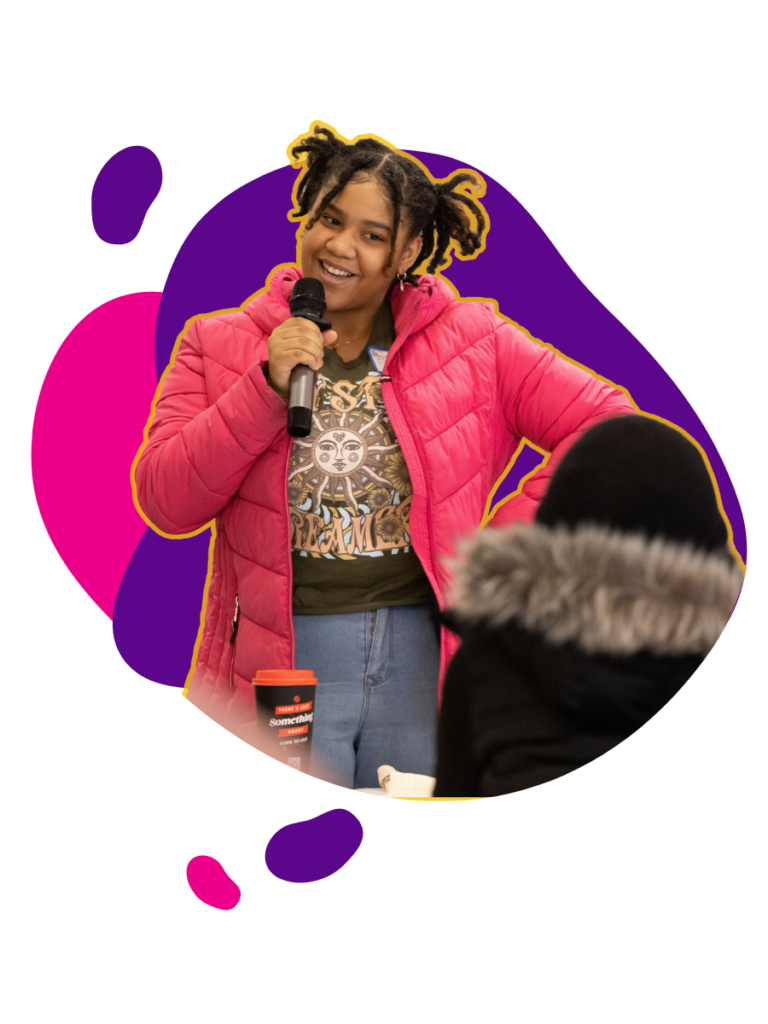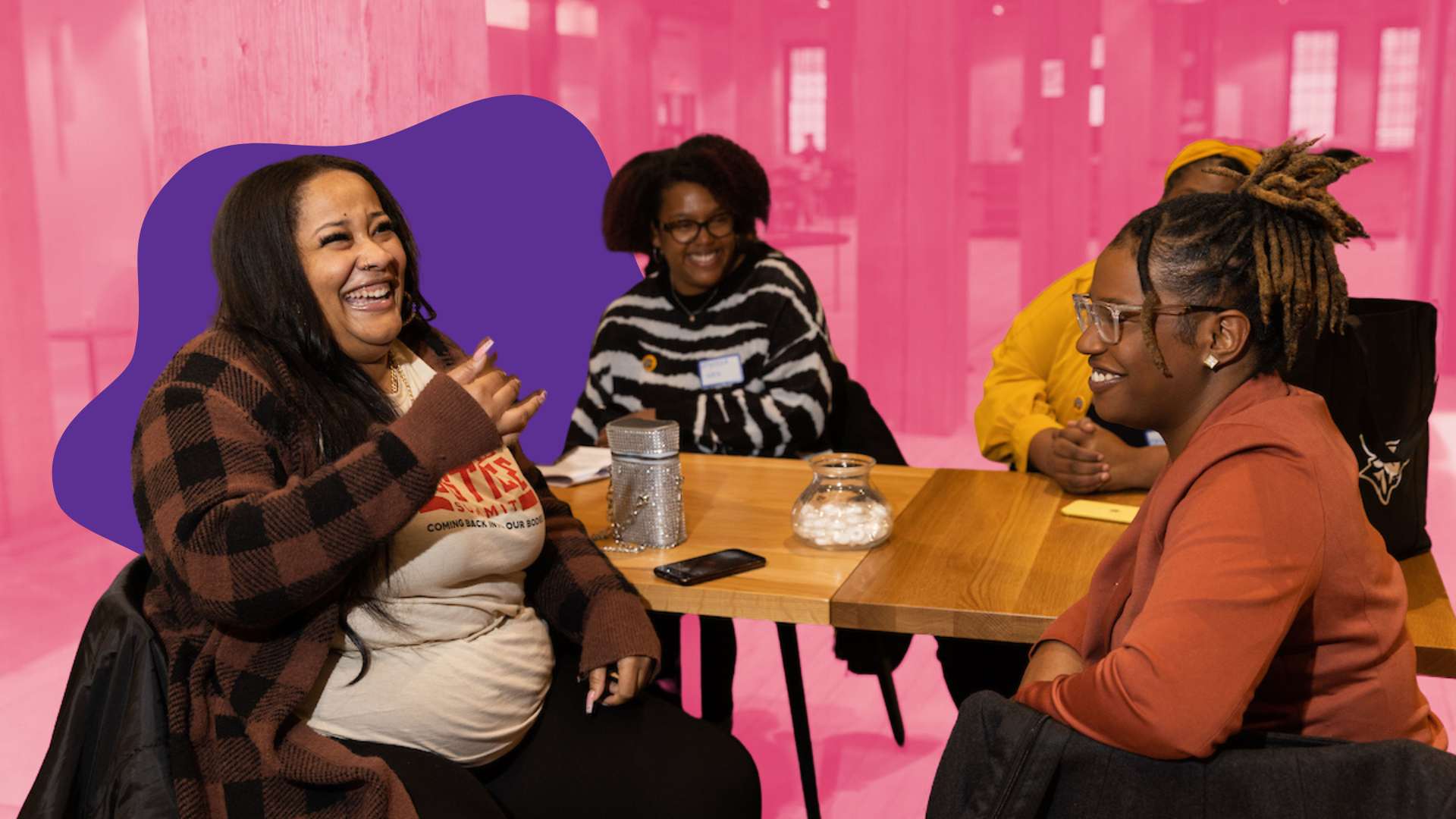We are the energy and the essence and deserve a world where Black women, femmes and girls live in wholeness.


Inspired by the work of bell hooks, Audre Lorde and other Black feminists and womanists, our organization provides transformational change at the intersections of gender and race. The term “I Be,” framed by author bell hooks in Be Boy Buzz, inspired IBBG’s founder to fill spaces with what it means to exist as a Black woman, femme or girl — where we are free to define and own that narrative.
We’re Black all the time, period! Therefore, we will always work on behalf of, for and in thoughtful collaboration with Black women, femmes and girls -- recognizing the gradients in our experiences and stories.
We are thought leaders who amplify the power and choice that we hold as Black women, femmes and girls. We influence spaces that were thought to be untouchable, build spaces that are for us by us, and serve where, when and how we decide.
We operate from radical truth and authenticity and maintain a deep sense of value and worth.
Reproductive Justice is a framework that addresses the systemic oppressions that disallow all people to access reproductive health and their reproductive rights as they decide, how they decide, when they decide.
Unlike reproductive rights, Reproductive Justice goes beyond contraception, abortion access and the “my body, my choice” campaigns throughout the U.S. The framework demands consideration of all the ways reproductive health can be affected by other factors, such as race, religion or sexual orientation to financial, immigration or disability status to environmental conditions. “It’s about liberation and it’s about dismantling systems of oppression that make our lives hard in this country but also that make it impossible for us to have the access and the choices that we want to have” (Monica Simpson, 2019). Movement building and organizing are essential elements of Reproductive Justice. The focus on organizing women, girls, and gender/sex minoritized individuals and their communities to challenge structural power inequalities is the foundation on which reproductive rights and reproductive health are made real (Ross, 2006).
Reproductive rights are centered around the legal right to access sexual and reproductive health care services like abortion and birth control.
Reproductive justice links reproductive rights with the social, political and economic inequities at both a system and individual level, that affect one’s ability to access and have choice in comprehensive sexual and reproductive health options (Adapted from Black Women’s Health Imperative).
I Be Black Girl does not and shall not discriminate on the basis of race, color, religion (creed), gender, gender expression, gender identity, age, national origin (ancestry), disability, marital status, sexual orientation, citizenship status, veteran status, political affiliation, or economic status, in any of its programs, activities, and employment. We are committed to providing an inclusive and welcoming environment for all members of our staff, volunteers, subcontractors, and partners. I Be Black Girl is an equal opportunity employer. We will not discriminate and will take affirmative action measures to ensure against discrimination in employment, recruitment, advertisements for employment, compensation, termination, upgrading, promotions, and other conditions of employment against any employee or job applicant on the basis of race, color, gender, national origin, age, religion, creed, disability, veteran’s status, sexual orientation, gender identity or gender expression.

Stay connected on what’s happening with us.